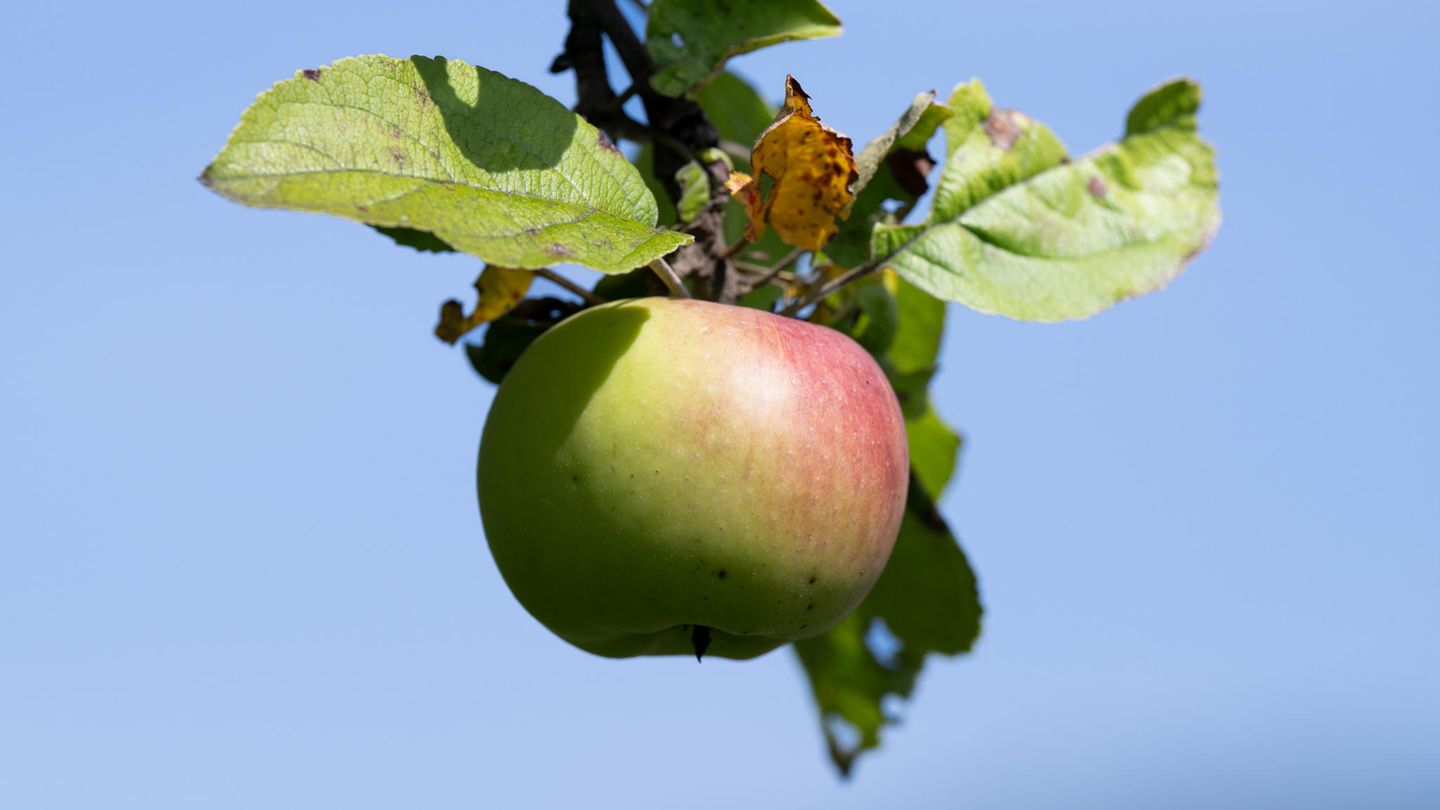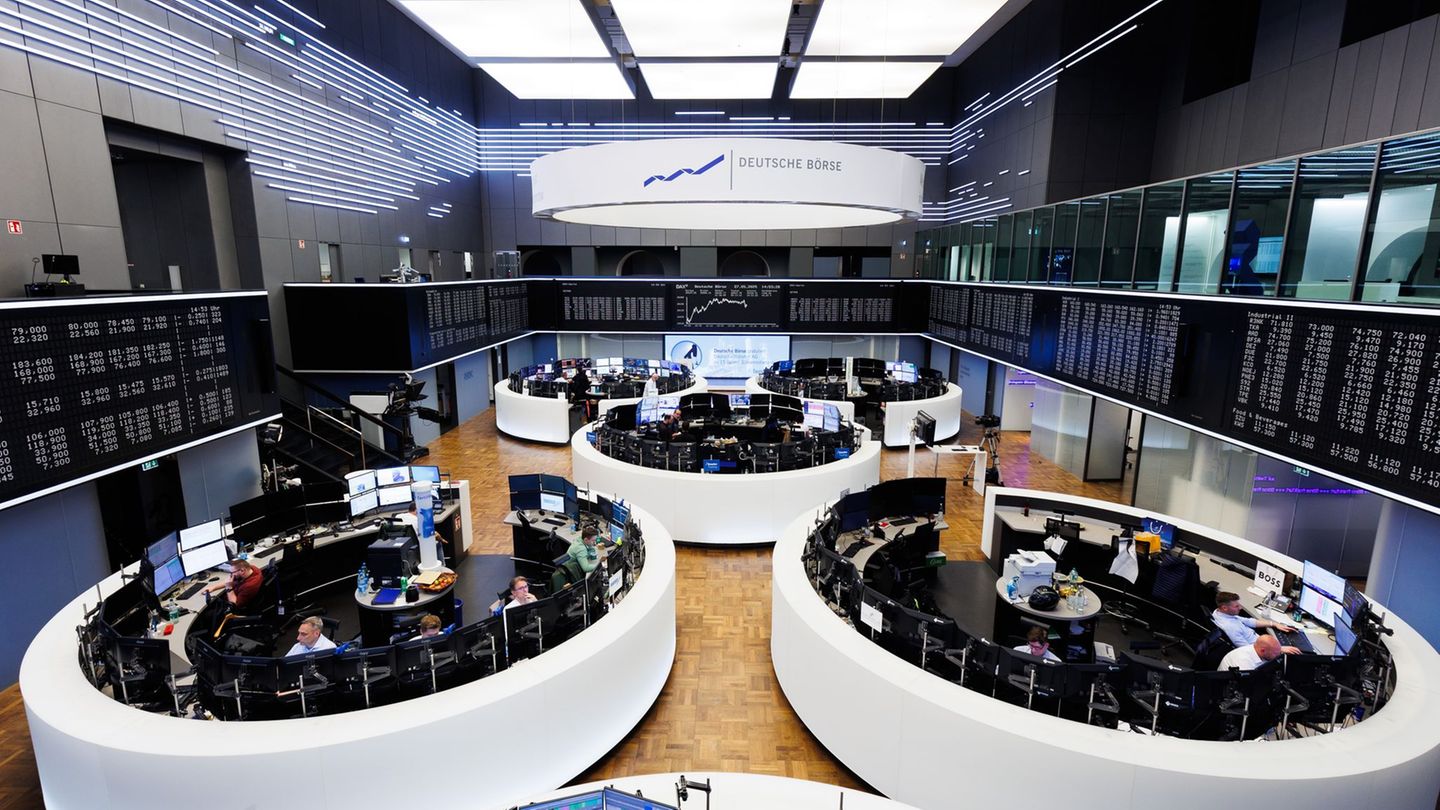German fruit growers are expecting a poor apple harvest. The reason for this is the weather during the blossoming period. This affects consumers in particular – but not only them.
Due to the unfavorable weather and poor harvests, consumers in Germany must expect rising prices for apples and processed products. The apple harvest in Germany this year will be the lowest in seven years, reports the Federal Statistical Office. Other types of fruit are also rare this year.
Fruit growers are expecting a quantity well below average of 734,000 tonnes, reports the statistics office based on an estimate from July. That would be around 22 percent less than last year and 26.3 percent below the average of the past ten years. The agricultural information company AMI is expecting a slightly larger quantity of around 800,000 tonnes.
Crop losses of up to 90 percent
Late frosts caused the blossoms to freeze, particularly in the southeastern states such as Thuringia and Saxony, and hail destroyed many fruit buds. Heavy rainfall and the often damp, cool weather hampered the development of the fruit over the rest of the year. Crop losses amounted to up to 90 percent. In North Rhine-Westphalia, the apple harvest was halved compared to the previous year.
In 2024, three quarters of the German apple harvest is expected to come from the large growing areas in Baden-Württemberg (Lake Constance) and Lower Saxony (Altes Land). The two states account for a good 60 percent of the total German apple cultivation area.
Apple harvest better abroad
Things are looking a little better in neighboring countries: According to the AMI forecast, this year’s apple production in Europe is only eleven percent lower than last year. The apple harvest began in August. Thanks to the estimate, the industry says it knows in advance pretty precisely how much fruit will come onto the market. Below-average harvests are also to be expected for many other fruits such as cherries, pears, plums and mirabelles.
Demonstration in Berlin
“The traffic light must go”: Farmers protest with sharp messages against the government’s austerity plans
According to AMI market expert Helwig Schwartau, apples are the most popular type of fruit in Germany. Although there will be a sufficient supply for consumers, around 100,000 tonnes more will have to be imported than before. The average retail price is likely to increase by around ten percent and generally exceed the two euro per kilo mark, estimates Schwartau. Stable quantities are expected for varieties produced in the Mediterranean region such as Golden Delicious or Gala, but there will be a deficit for varieties from the north such as Jonagored or Elstar.
“Water is the decisive factor”
“Because of climate change, we have to prepare ourselves for less fruit production in Europe in the coming years,” says Schwartau. In order to compensate for fluctuations in heat and frost, fruit farmers need irrigation systems. “Water is the decisive factor. But the necessary reserves are not available in all regions.”
The poor yields also have an impact on processed products such as fruit juices and smoothies. The Association of the German Fruit Juice Industry (VdF) says it is not yet possible to say how much the price increases for apple juice will be. Consumers in this country have already drunk less fruit juice and nectar in 2023. According to the VdF, the reason for this was the increased prices. According to the Federal Statistical Office, the price of apple juice is currently 33 percent higher than in 2020, and that of orange juice as much as 57 percent.
Higher prices difficult to enforce
The apple wine presses around Frankfurt, which are already suffering from higher energy costs, are facing similar problems. “It is difficult to get the apples you need for a year,” says Ralf Walther from the Association of Hessian Apple Wine and Fruit Juice Presses. The fruit then has to be sourced from other regions. “That means we have to dig deeper into our pockets.” At the same time, customers are often unwilling to spend more money. “They want gold, but only pay for lead.”

This is what happens when you wash an apple under hot water
00:54 min
Manufacturers of apple sauce and apple pulp, jam, marmalade, canned fruit and fruit spreads are also affected. The companies would have to approach retailers with higher price demands if they do not want to be in the red, said the managing director of the Federal Association of the Fruit, Vegetable and Potato Processing Industry (BOGK), Christoph Freitag.
It is not yet possible to say how high the price increases will be for consumers. The Association of Large Bakeries believes that price increases of up to five percent are possible for cakes and pastries containing fruit. However, this also depends on the price development of other ingredients such as flour and sugar, says managing director Tobias Schuhmacher.
Peaches and apricots are smaller
The BOGK describes the situation as “drastic”. In Poland, the most important supplier of strawberries, only half of the usual amount was harvested. The situation is similar in other countries. Switching to other types of fruit is not possible this year because these are also in short supply. Other red berries are also affected, with peaches and apricots having smaller fruits and quality problems as a result of the cooler weather.
Because there is so little raw material available, the usual production volumes cannot be achieved. Because of the limited quantities, the available fruit is also significantly more expensive, says association manager Freitag. In addition, production costs have also increased – for example for energy, personnel and logistics.
Source: Stern




